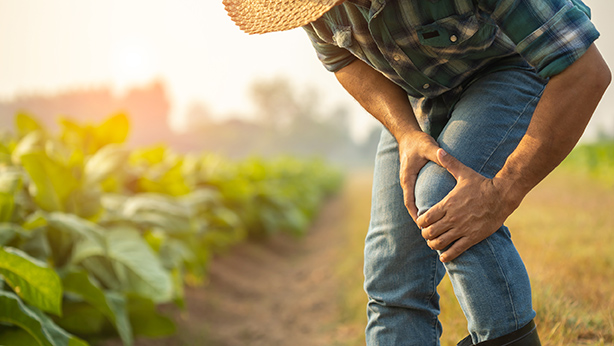The importance of taking farm health and safety seriously has been emphasised by an agricultural recruitment agency.
James Harris, recruitment director at REAL Success, spoke on the issue at the start of Farm Health and Safety Week, which commenced yesterday 22 July.
“People still think health and safety is imposed upon them, but we have to cross the bridge between compliance and culture. As long as it’s a box-ticking exercise it’s not true farm safety,” he said.
See also: SFI stacking options could boost farming income, analysis finds
According to the Health and Safety Executive, the agricultural sector has the worst fatal injury rate, 21 times higher than the average over the past five years.
The past year alone has seen 34 people lose their lives on UK farms, with many others suffering severe injuries.
“These statistics highlight a critical need for change in how health and safety is approached on farms,” James said.

“Most accidents are as a result of habit, haste, fatigue or improperly maintained machinery. Safety shouldn’t be an afterthought, it should be a forethought – we often fit an alarm on our houses after being burgled.”
James argued that the current attitude towards health and safety is one of “compliance rather than culture”, where rules are followed because they are required, not valued.
Conversely, a health and safety culture should integrate good practices into daily operations, making them as important as tending to livestock or maintaining equipment.
But changing attitudes poses a challenge: “Farming is often seen as inherently risky, with accidents viewed as part of the job. This attitude needs to shift towards a proactive approach to safety,” continued James.
“Training and education are essential in this effort, providing farmers and workers with the skills to identify and mitigate risks. Farm safety is also about how hard you’re expecting people to work – accidents happen when people are tired.”
Health and safety must also be a continuous effort, with regular risk assessments of machinery and protective equipment becoming routine.
“Leadership is crucial – farm owners and managers must set an example by showing that safety is a core value.”
James concluded by saying that farming does not need to be synonymous with danger, and that protecting those in the industry can ensure sustainability for future generations.


